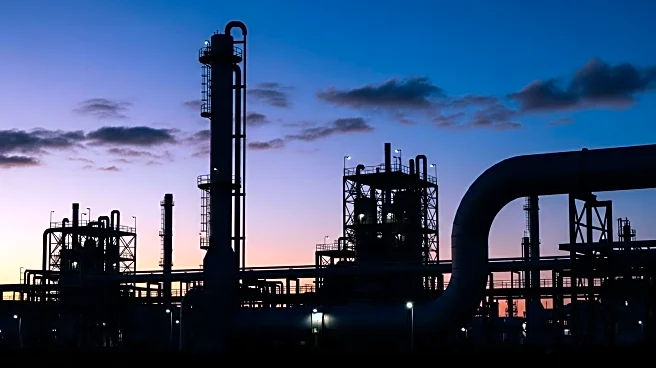What's Happening?
Exxon Mobil has announced a delay in its plans to construct a new plastics production facility on the Texas Gulf Coast. The $10 billion project, initially set to begin next year, has been postponed due to current market conditions. A recent court ruling invalidated a tax break agreement with the local school board, following a lawsuit by environmental advocate Diane Wilson. The court ordered a redo of the public hearing on the tax break, citing inadequate notice. Exxon maintains interest in the project but will reevaluate its status when market conditions improve. The facility was expected to produce polyethylene pellets for export, primarily to Asia.
Why It's Important?
The delay of Exxon's plastics plant underscores the complex interplay between economic conditions, legal challenges, and community opposition in large-scale industrial projects. The decision impacts local economic development and job creation prospects, while highlighting the influence of environmental advocacy on corporate strategies. The postponement reflects broader market uncertainties in the plastics industry, despite forecasts of strong demand growth. This situation illustrates the importance of community engagement and transparent public processes in securing project approvals and tax incentives.
What's Next?
Exxon plans to maintain relationships with community leaders and contractors, indicating potential future reevaluation of the project. The outcome of the rescheduled public hearing on the tax break agreement will be pivotal. Market conditions, including demand forecasts for polyethylene, will influence Exxon's decision-making. Environmental groups may continue to challenge the project, affecting its timeline and scope. Stakeholders, including local government and industry analysts, will watch for developments in market trends and legal proceedings.
Beyond the Headlines
The delay highlights ethical considerations in balancing economic development with environmental protection. The case exemplifies the power of grassroots activism in influencing corporate decisions and public policy. Long-term implications may include shifts in corporate strategies towards more sustainable practices and increased scrutiny of environmental impacts in industrial projects.










